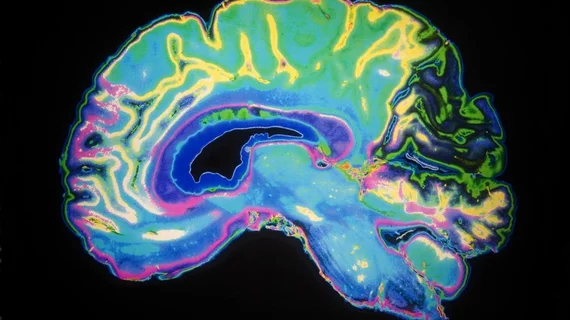Cleveland Clinic to utilize brain MRIs in massive 20 year neurological disease study
What if disease progression could be stopped before it ever started? Though it sounds like a tall order, that is exactly what a massive new neurological study at the Cleveland Clinic seeks to achieve.
The Cleveland Clinic Brain Study, led by Andre Machado, MD, PhD, and Imad Najm, MD, both with the institution's Neurological Institute, is set to be the largest of its kind. Over a span of 20 years, researchers will analyze up to 200,000 neurologically healthy individuals in an attempt to identify disease biomarkers as soon as they are present. The study is a tremendous undertaking, requiring the collaboration of a multi-disciplinary team of doctors, scientists and researchers across the world.
“By launching a study of this magnitude, we have the potential to discover causes of neurological disorders and what happens before symptoms become obvious —the silent phase,” Machado explained. “Our hope is to change the course of neurodegeneration, with the long-term goal of curing diseases in their earliest stages, years before symptoms are even seen.”
The first phase of the study will monitor a mix of patients aged 50 and older who have no known neurological conditions along with people 20 and up who have a first degree relative diagnosed with multiple sclerosis. Participants will undergo extensive yearly neurological examinations that include brain MRIs, bloodwork, eye retina scans, EEGs, sleep studies and other cognitive function tests.
“By researching at-risk healthy individuals over the course of 20 years, we will learn what is happening to the brain and body before a neurological disease is diagnosed,” Najm said.
As advances in medical imaging have been made, so too have researchers’ understanding of the origins of various brain diseases. Recently, researchers unveiled a new MRI technique that detects multiple sclerosis earlier than ever before, and another study used an AI/MRI combination to predict dementia in at risk patients with 94% accuracy.
This new Cleveland Clinic study seeks to use those advances as momentum to push their research even further beyond the current scope of understanding of neurological conditions, aiming to gather enough data to eventually be able to stop disease progression in its tracks.
For more information on the study, including how to participate or contribute, click here.

